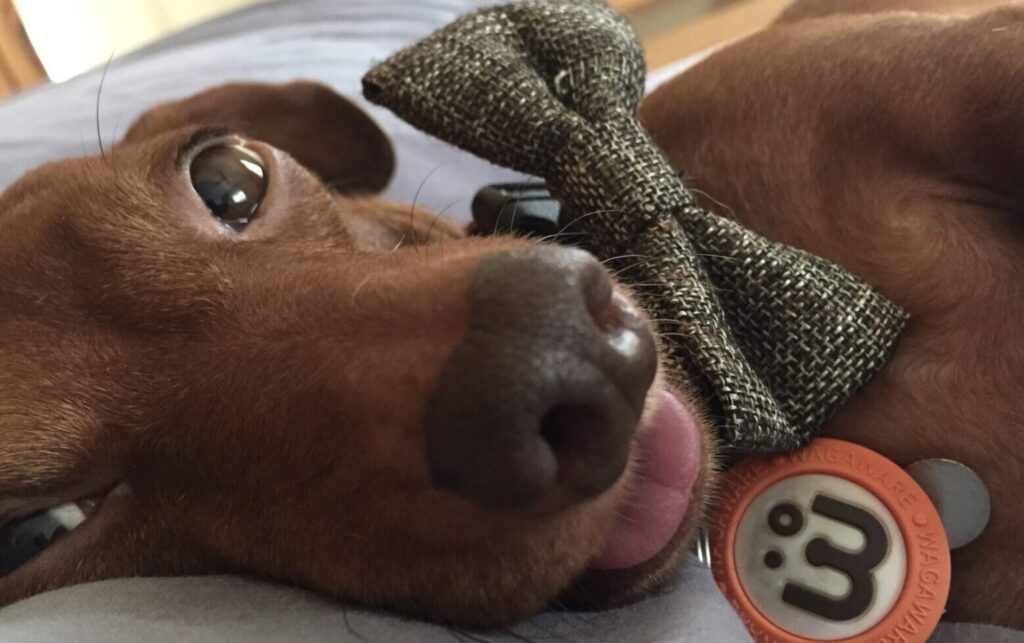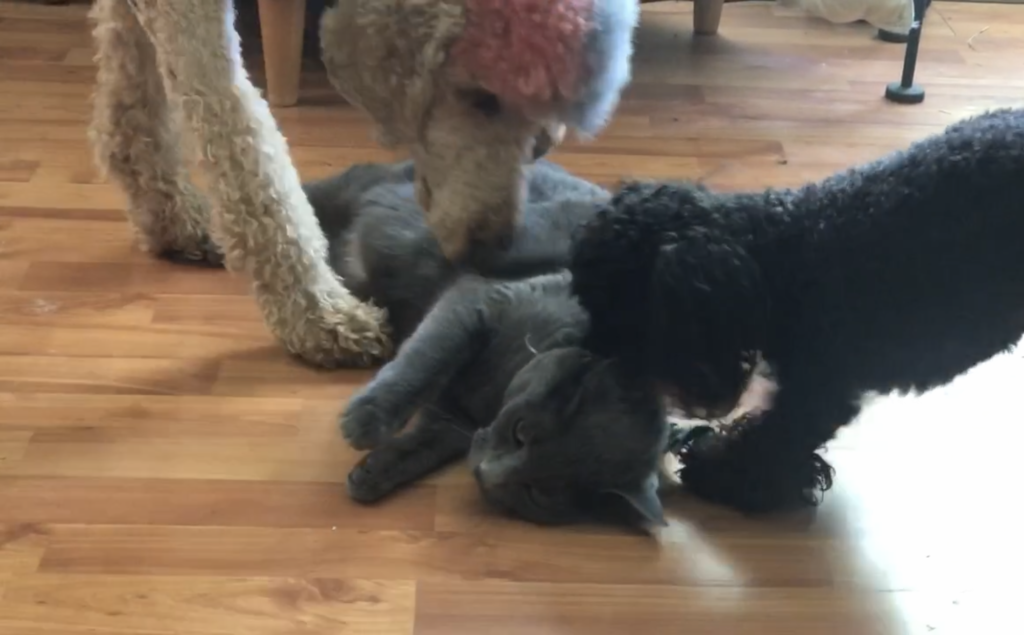Does your dog pee when greeting strangers or if something startles them?
Often called submissive urination, this is most common in puppies but some adult dogs do it too. Read on to learn some of the reasons and what you can do to help you dog gain confidence.
First, visit your vet
Dogs may pee a little if they have an infection or something wrong with their body. Always start with your veterinarian to rule out disease or something physically wrong.
If the cause is something that would prescribe Proin or another drug that causes side effects and organ damage from long-term use, I’d try something natural first. Millie was a standard poodle in terrible shape sold at a garage sale in Georgia. She came to my rescue on Proin. Per my vet and blood tests her liver was struggling.
Millie was suffering from spay incontinence, according to their vet, and dribbled almost constantly. I found out corn silk is used by indigenous cultures to improve urinary health. Corn silk stopped Millie’s leaking urine and stopped taking Proin with my veterinarian’s blessing.
As always, do your research before adding anything or get help from a veterinarian who studies natural medicines, Chinese herbal, and the like. Corn silk may cause electrolyte and blood sugar imbalances.
Maybe my dog is a scaredy cat or gets too excited?
Some dogs want to avoid confrontation in a big way. They are easily identified because the things they do make them seem smaller.
In my experience caring for many dogs together, I noticed that some young and old pups urinate to scent the space. I haven’t studied why they do this but it happened often enough — immediately after a trip outside or after cleaning up — that a pattern was clear. Perhaps this urinating is part of that, a fearful dog finds comfort in their own smell.
So what do we do about it?
Some dogs pee a little when they’re experiencing intense emotions. In that case:
increase your dog’s confidence. We can help with that!
- Don’t excite this dog while petting. Speak softly and with a calm voice.
- Ask visitors to ignore your dog until the dog approaches them confidently.
- Avoid direct or intense eye contact with dogs. Treat them like a ghost you can’t see until they come to you.
- When your dog approaches, avoid eye contact and dangle your fingers at your side. Allow them to approach and sniff if they want to. Maintain your cool and avoid looking at the dog. Talk softly if it seems to help.
- If your dog shows signs of being smaller — crouching, rolling onto their back, lowering their ears and tail — stop petting and move away.
- Avoid leaning over dogs or making eye contact. Calming Signals — click here to learn about Turid Rugaas’ pivotal book — can help you speak a dog’s language and make the interaction less intense for them.
As always, when we’re trying to untangle a dog’s behavior, journaling makes the work faster and more consistent. Have a little book handy — or a voice memo device like your phone — and quickly note what happened leading up to the urination.
- What does the person who triggered a response look like?
- What was their physical orientation to your dog?
- What was happening in the environment before and during the incident?
WilloWisdoM is here to help! Don’t stay stuck in a frustrating situation that could lead your dog to lose you and their happy home. Thank you for reading.



